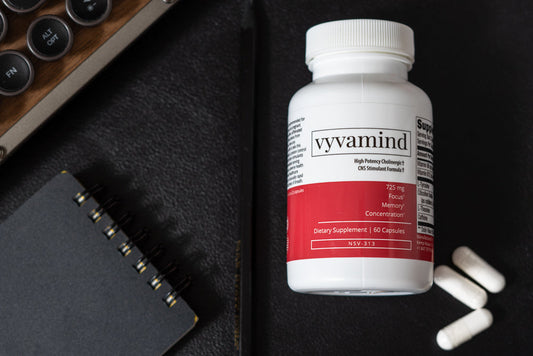Does Coffee Make You Gain Weight?

While coffee itself contains almost no calories, the way we drink it can transform this simple beverage into something that might impact the numbers on our scale. From fancy café concoctions loaded with syrups and whipped cream to seemingly innocent splashes of creamer in your morning brew, your coffee habits could be affecting your weight in ways you haven't considered. Let's separate fact from fiction and explore the complex relationship between coffee consumption and weight management.
Can Coffee Cause You to Gain Weight?
Your morning cup of coffee seems innocent enough – a warm, energizing ritual that kickstarts your day. But if you've been watching the scale creep up, you might be eyeing that daily brew with suspicion. Like most questions about weight gain, the answer isn't a simple yes or no. Weight gain stems from multiple factors, including sedentary habits, overall diet choices, and even genetics. When it comes to coffee's role in this complex equation, we need to look at the bigger picture.
Let's start with some good news for coffee lovers: black coffee is virtually calorie-free. With less than 5 calories per cup, it's a far cry from the caloric content of sodas or energy drinks. If you're a black coffee purist, your daily cups aren't likely contributing to weight gain. In fact, coffee might even offer some advantages in your weight management journey.
Here's where things get interesting: coffee itself isn't usually the culprit – it's what we add to it. That splash of cream and spoonful of sugar might seem harmless, but they can add up to 100 calories or more per cup. Multiple cups a day with these extras? Now we're talking about significant calories that could influence your weight over time. Think of it this way: three cups of coffee with the works could silently add the equivalent of a full meal to your daily intake.
There's another factor worth considering: caffeine's effects on your body. As a natural stimulant, caffeine can temporarily boost your metabolic rate and even help curb your appetite. While this might sound like a weight loss miracle, don't get too excited. These effects, while real, are modest at best – not nearly significant enough to counteract an unbalanced diet or compensate for those coffee add-ins. Consider it a small bonus rather than a weight loss strategy.

Does Caffeine Cause Belly Fat?
While it's tempting to point fingers at your caffeine habit for those extra inches around your waist, the relationship between caffeine and belly fat isn't quite so straightforward.
Here's the reality: that pesky belly fat is more like a complex puzzle than a simple cause-and-effect scenario. Think of it as a combination of factors working together – your genetic blueprint, what's on your plate throughout the day, how much you move, and even how well you sleep all play their parts. Caffeine, despite its powerful effects on our bodies, isn't the solo artist in this performance.
Current research hasn't drawn a direct line between your coffee habit and increased belly fat. In fact, some studies hint at the opposite – caffeine might actually help with fat metabolism when paired with a balanced diet and regular exercise. But before you start downing espresso shots in hopes of melting away that muffin top, remember: no single ingredient or habit holds the key to spot reduction.
Does Caffeine Cause Weight Gain or Weight Loss?
While caffeine often gets starring roles in weight loss supplements and pre-workout drinks, its actual impact on your weight deserves a closer look.
Here's what we know: caffeine can be a modest ally in weight management, primarily through two interesting mechanisms. First, it can give your metabolism a gentle nudge, helping you burn a few extra calories throughout the day. Second, it might help curb your appetite, making it easier to stick to your eating plan. But before you start mapping your weight loss strategy around your coffee schedule, let's get real – these effects are more supporting actor than main character in your weight loss story.
When it comes to your body, caffeine operates like many other natural compounds – think L-Theanine or its branded counterpart Suntheanine – influencing various physiological processes. Its effects cascade through your system, impacting everything from how your body processes energy to how hungry you feel. However, just like any supporting player, caffeine alone isn't powerful enough to dramatically change your weight in either direction.

The Coffee-Weight Connection: A Deeper Dive
When you reach for that morning coffee, you're setting off a complex chain of reactions in your body that goes far beyond a simple energy boost. Let's explore how your daily brew interacts with various aspects of your metabolism and health.
Caffeine Consumption and Stress Levels
Think twice about that extra cup when you're under pressure. When stress hits, your body releases cortisol – that notorious hormone that loves to store fat, especially around your midsection. While your coffee might feel like a comforting friend during stressful times, it could be secretly working against you by amplifying cortisol levels. For those already juggling high stress levels, that additional caffeine boost might be doing more harm than good when it comes to your weight management goals.
Caffeine Consumption and Blood Pressure
Your morning brew has a direct line to your cardiovascular system, causing a temporary spike in blood pressure. While this effect is usually mild and short-lived for most people, it's worth keeping in mind if you're managing blood pressure concerns. For the average coffee drinker, this temporary rise isn't cause for alarm, but it's something to discuss with your healthcare provider if you have cardiovascular conditions.
Caffeine Consumption and Insulin Resistance
The relationship between your coffee habit and insulin sensitivity is complex. Insulin, your body's blood sugar regulator, plays a crucial role in weight management. While some research suggests caffeine might impact how your body responds to insulin, the evidence isn't definitive. This potential link between caffeine and insulin resistance raises questions about long-term effects on weight management and metabolic health.
Coffee and Appetite Control
Here's a potential bright spot in your coffee consumption: that cup might help tame your hunger pangs. Caffeine can act as a mild appetite suppressant, helping you feel fuller for longer. However, don't expect your latte to replace a balanced meal plan – its appetite-suppressing effects are subtle rather than transformative.
Coffee and Metabolic Rate
Your daily coffee does give your metabolism a gentle nudge upward. This increase in metabolic rate might help you burn a few extra calories throughout the day. However, let's keep it real – while this boost is welcome, it's not substantial enough to base your entire weight loss strategy around your coffee consumption.
Coffee and Blood Sugar
There's growing interest in coffee's potential role in blood sugar management, particularly for those with type 2 diabetes. Some research suggests coffee might help with blood sugar control, though we need more concrete evidence to fully understand this relationship. While promising, these findings are preliminary rather than definitive.

Coffee for Weight Loss: Should You Use It?
While your morning brew might seem like a potential secret weapon in your weight loss arsenal, it's time to separate fact from fiction about what coffee can – and can't – do for your waistline.
Here's the honest truth: coffee isn't your magic ticket to weight loss, no matter what trending diet articles might claim. While it offers some benefits that could complement your weight loss efforts – like a subtle metabolism boost and mild appetite suppression – it's not going to do the heavy lifting for you.
Speaking of trends, let's talk about bulletproof coffee – that butter-and-MCT-oil concoction that's been making waves in weight loss circles. Despite enthusiastic claims about sustained energy and enhanced fat burning, the science isn't there to back up these promises. In fact, dumping tablespoons of butter and oil into your coffee might be counterproductive – you're essentially turning your low-calorie beverage into a high-calorie bomb. Remember: adding hundreds of calories to your morning routine, even in liquid form, still counts toward your daily intake.
The bottom line? Coffee can be a helpful addition to a well-rounded weight loss plan, but it works best when paired with the tried-and-true basics: balanced nutrition, regular exercise, and healthy lifestyle habits. If you enjoy coffee, by all means, keep sipping – just don't expect it to be your weight loss miracle.
How Much Coffee Per Day is Safe?
If you're wondering about your daily coffee quota, here's your practical guide: most adults can safely enjoy 3-4 cups of coffee daily, which translates to about 400 milligrams of caffeine. Think of it as your coffee budget – you want to spend it wisely throughout the day.
But here's the catch: exceeding this limit isn't like going a few dollars over budget. Too much caffeine can turn your productive day into an uncomfortable experience, bringing on unwanted guests like jitters, sleepless nights, anxiety, and a racing heart. Remember, this limit includes all sources of caffeine, not just your coffee cups.
Conclusion: Does Coffee Cause You To Gain Weight?
Let's put this coffee and weight gain puzzle to rest. Your daily coffee ritual isn't inherently a culprit in weight gain – it's all about how you approach it. Think of black coffee as a nearly calorie-free canvas; it's what you add to it that can turn it into a weight management friend or foe.
While that morning cup won't magically melt away pounds or secretly pack them on, here's what we know: black coffee can be part of a healthy lifestyle without derailing your weight goals. However, transform it into a daily dessert-like drink with cream, sugar, and flavored syrups, and you're adding significant calories to your daily intake.
As for caffeine's much-touted weight loss benefits? Consider them a small bonus rather than a weight loss strategy. The key takeaway is balance – coffee can be part of your healthy lifestyle, but it's not a magic solution for weight management. Like most things in nutrition, moderation is your best friend. Focus on your overall diet and lifestyle habits, and let coffee be what it does best – an enjoyable part of your daily routine.

Replacing Coffee With Vyvamind For Weight Loss
When it comes to supporting your weight loss journey, using caffeine strategically can be more effective than your usual coffee routine. The science is clear: precise caffeine intake is linked to several helpful effects – it can dampen your appetite, speed up fat burning, and help you power through tough workouts even when you're eating less. This is particularly valuable when you're cutting calories and need that extra edge to maintain your exercise intensity.
But here's the catch – getting these benefits isn't as simple as loading up on caffeine. Too much can be counterproductive, sending you into a spiral of sleepless nights and anxiety-filled days. When your sleep quality tanks and stress hormones like cortisol spike, you're actually setting yourself up for increased cravings and a slower metabolism – exactly what you don't want during weight loss.
Vyvamind approaches this challenge by combining precise amounts of caffeine anhydrous with L-theanine, creating a balanced energy boost that avoids the common pitfalls of regular coffee consumption. This formulation aims to enhance mental clarity and focus without the jitters or sleep disruption. The additional ingredients are designed to support the mental challenges of dieting – helping maintain focus and motivation when your energy might be running low.





